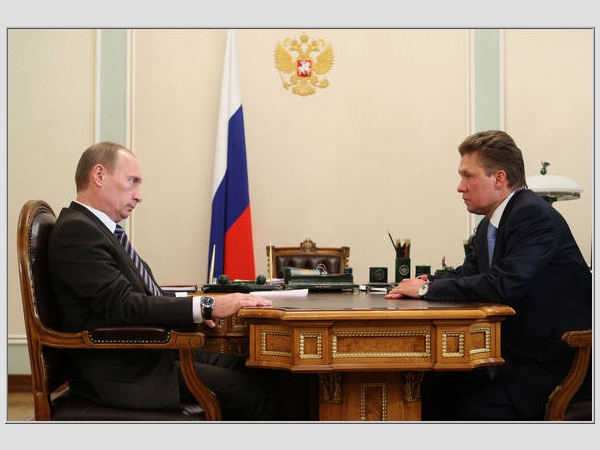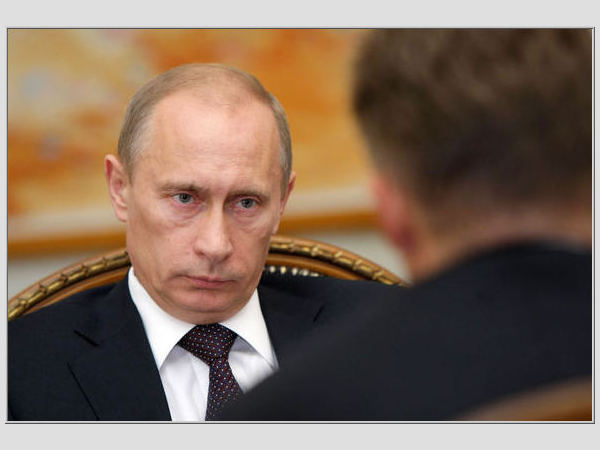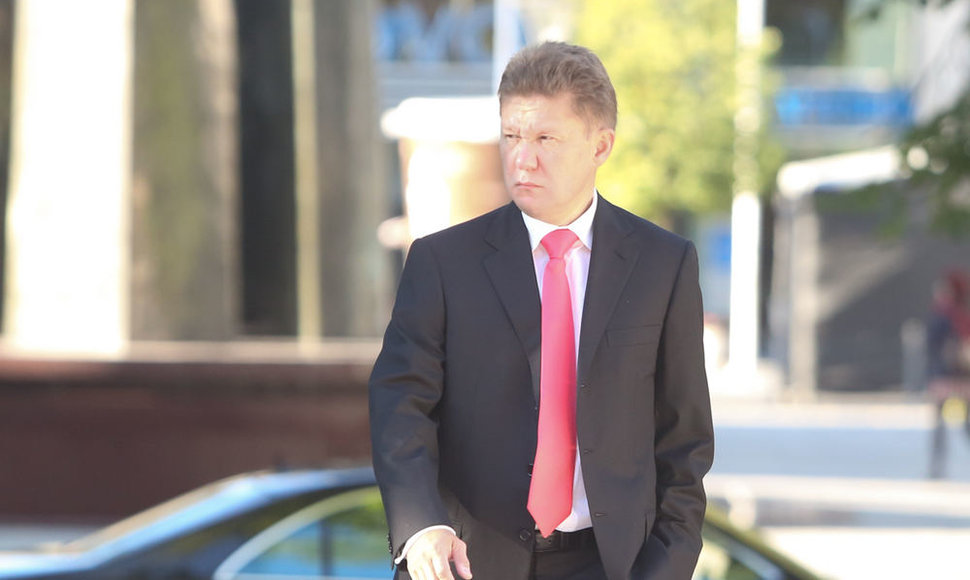This was Miller before he took control of Gazprom. In 2001, the position at the helm of the company, previously occupied for almost a decade by Rem Viakhirev, went to “a young man whom he, the president [Vladimir Putin], trusts.”
“President Putin landed the biggest victory of his entire term. At the helm of the country's biggest company now stood a man completely loyal to Putin. […] From now on, Gazprom and Russia would be run from one office,” according to a summary by Veleryi Panyushkin and Mikhail Zygar in their book “Gazprom. New Russian Weapon.”
The two authors describe Gazprom as Kremlin's alter ego and the most important weapon in Russia's arsenal.
Gazprom, as the Economist magazine notes, has two managers – private investors and the Kremlin. The company's controlling interest, of a little over 50 percent, belongs to the Russian state. Therefore Gazprom's loyalties are divided between private shareholders, who want profit, and the Kremlin's politics. To ensure the latter interest, the company must be headed by a loyalist. And Miller seems to be just the guy.
 |
| Vladimir Putin and Alexey Miller |
Putin's fellow from Saint Petersburg
Miller, who has a degree from Saint Petersburg Institute of Finance and Economics, started working with Putin back in 1991. Between 1991 and 1996, he worked in the Foreign Affairs Committee of Saint Petersburg City Municipality which was headed by Putin at the time.
According to lenta.ru, Miller's responsibilities included developing the city's investment zones. He was the one who brought the first foreign-capital banks to his home city.
In 1996, when Mayor Anatoly Sobchak lost elections to Vladimir Yakovlev, Miller went to work as development and investment director at Saint Petersburg Seaport authority.
In 1999, Miller started working for the Baltic Pipeline System. One year later, he returned to his former superior Putin, who took him along to Moscow and appointed deputy energy minister. As it turned out later, just so he could entrust Gazprom to Miller.
According to Panyushkin and Zygar, “the president wanted that his decision to replace Viakhirev with his Petersburgian protégé be adopted unanimously.”
To that end, a member of the Directors' Council, Farid Gazizulin, was allegedly recalled from vacation. The Council was introduced to the new chief of Gazprom – a “nervous apparatchik with tiny moustache.”
Miller was only 39 when he became the director of one of the most powerful corporate entities in Russia and the world. “And he was little more than just an old acquaintance of the president at the time,” according to the book. Miller shaved off his moustache, his bearing eventually acquired an air of calm ease, and he learned how to smile.
 |
| Vladimir Putin and Alexeys Miller |
Hard beginning
Despite Putin's backing, Miller had some hard time in the beginning. Soon after his appointment, the media ran a story about him allegedly handing in a letter of resignation.
The story, however, was removed and the public servant who leaked the information fired.
“One thing that is clear is that his resignation would have been rejected anyway – otherwise, Putin would have had to admit he had made a mistake. […] Miller was untouchable. And not because he was unerring, but because Putin was not willing to acknowledge these errors. Once, within a small circle, Viakhirev lost his temper and blurted that “Miller will hang himself in a month.” But the month had passed and Miller had no intention of hanging himself. Perhaps also because he was forbidden to,” alleges “Gazrpom. New Russian Weapon.”
Slowly, step by step, Miller learned how to make it work in Gazprom. His role model was Putin himself. Initially, he replaced all comrades of the former chief and then gradually gave the posts to his own people.
“With maximum speed, Miller installed reliable people in key positions. The reliable people had to, with maximum speed, take over control of Gazprom's main financial flows and take away from Viakhirev's people assets that they had removed from the company. The then security service chief at Gazprom, Sergey Lukash, claims that appointments to all key posts were subject to the president's personal approval,” Panyushkin and Zygar write.
According to the New York Times, Miller's ascent to the helm of Gazprom had to do with the fact that the company had been mismanaged for years. So Miller's key task was to get the indebted gas giant back on its feet.
He decided that the answer to his problems was to buy back shares from Gazprom's employees, to increase gas supply, and to prevent the company's own employees from stealing.
Replacing henchmen of the former chief with his own people was part of the cost-cutting plan. According to the Encyclopedia of Business, however, Miller did not see it as a pressing task.
Miller's achievements
The first signs that the plan was starting to work appeared in 2003. The company drafted a long-term expansion plan – the main focus was to be on creating a competitive market, new pricing policy, investment. Miller's plan also focused on the European gas market, Gazprom's main target.
Miller achieved financial stability in the company within three years of taking over its management.
Even though he declared Europe as the main market for Gazprom, he simultaneously scouted for other potential clients. He researched Asian markets by the Pacific Ocean, China, Japan, Korea.
One key point in Miller's long-term strategy was upping gas prices. He opposed any moves to split Gazprom into smaller companies and resisted moves to privatize it.
One of the criticisms laid against Miller in Russia is that he did not anticipate a shale gas revolution in the United States. Nor did he have faith in the liquefied natural gas (LNG) market. However, allegedly nudged by the Kremlin, Miller reversed his scepticism and declared this year that Gazprom hoped to supply 15 percent of the world's LNG needs.
In the opinion of the Encyclopedia of Business, Gazprom will remain a state-run gas behemoth at least as long as it is run by Miller.
In 2012, the Russian edition of the Forbes magazine gave Miller the second spot in its list of top-paid managers. According to the magazine, the CEO of Gazprom makes 25 million US dollars a year.



















